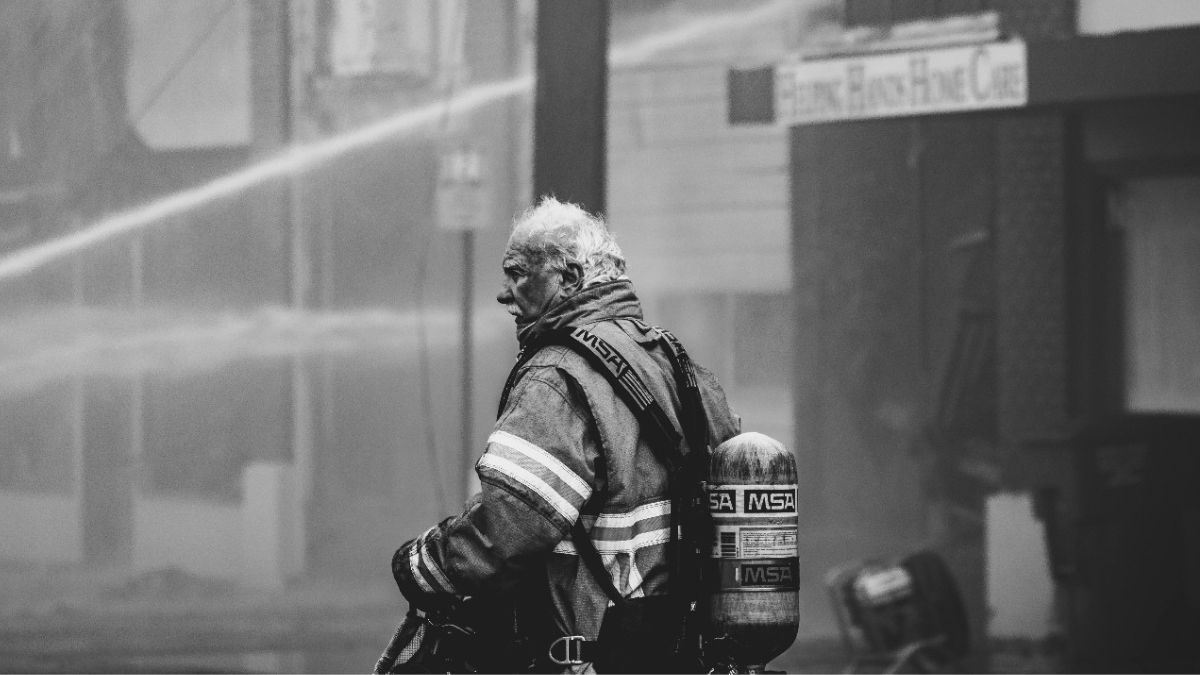The role of a firefighter is heralded as one of bravery and strength. Yet, beneath the heroism lies a vulnerable human susceptible to the intense pressures and traumas inherent in emergency response. The physical demands of their job often overshadow the mental wellness of firefighters, but it is just as critical.
This article highlights the seven practical approaches to enhance mental health and wellness within the fire service, aiming to support those who dedicate their lives to saving others.
Seven Ways To Support Firefighters’ Mental Wellness
1. Encourage Open Communication Within Your Fire Department
Fostering a communicative environment is pivotal in any high-stress profession, especially firefighting. Encouraging open dialogue helps dismantle the walls that may prevent firefighters from discussing their feelings or mental struggles.
When firefighters are assured that their mental health diagnoses are positive and will be addressed with empathy, they are more likely to speak up and seek help. This openness not only enhances individual well-being but also fortifies the team’s cohesion and collective resilience.
2. Provide Your Firefighters with Mental Health Resources
Ensuring effective recovery and preventive mental health measures for firefighter is crucial. Mental health courses equip them with the essential knowledge to safeguard their wellbeing. These courses cover a range of topics, such as stress management, sleep and sleep fatigue, and ways to build reliance against stressors.
Providing ongoing access to such training ensures that firefighters are well-equipped to recognise and manage their mental health needs. Furthermore, integrating these courses into regular training schedules underscores their importance, which is on par with physical training.
3. Offer Training on Trauma-Informed Care
Trauma-informed care training goes beyond recognising trauma—it involves understanding the profound impact it can have on individuals, including firefighters.
This type of training educates firefighters on how to handle situations in a way that considers the emotional and psychological states of all involved, promoting a supportive response that can aid in healing rather than inadvertently exacerbating the trauma. It also prepares firefighters to manage their trauma responses better, enhancing their overall mental health and job effectiveness.
4. Foster a Culture of Wellness Within Your Fire Department
Cultivating a wellness-oriented culture is essential in supporting mental health. This can be implemented through activities that promote mental, emotional and physical well-being, such as meditation, physical fitness programmes and regular social events that strengthen camaraderie.
By integrating these practices into the daily lives of firefighters, departments can help reduce stress levels and build a supportive community that recognises the importance of mental health.
5. Recognise the Signs of Firefighter Mental Health Issues
All fire department personnel must be trained to identify the early signs of mental distress and know how to respond appropriately. Recognising these signs—such as withdrawal from social interaction, increased irritability or decreased job performance—can be the first step in providing necessary support.
Regular training sessions on this topic can empower firefighters with the knowledge to help themselves and their colleagues before more severe issues arise.
6. Address the Stigma Surrounding First Responder Mental Health
Combating the stigma associated with mental health issues in firefighting is perhaps one of the most challenging but essential aspects. Creating an environment where mental health is openly discussed and treated seriously requires a cultural shift.
Leaders within fire departments can play a crucial role by speaking openly about mental health, sharing their own experiences and leading by example. Normalising these conversations can pave the way for a more supportive and understanding workplace.
7. Promote Ongoing Development in Emergency Response Techniques
Advanced training and development in fire safety not only keep firefighters well-prepared but also significantly impact their mental health by reducing anxiety and stress during operations.
Ensuring that firefighters have up-to-date knowledge and skills through ongoing training can instil a sense of competence and confidence. This not only improves their effectiveness in the field but also supports their mental resilience by reducing feelings of inadequacy and fear.
Final Thoughts on Supporting Firefighter Health and Wellness
The journey to supporting the mental health and wellness of firefighters is multifaceted and ongoing. By adopting these seven strategies, fire departments can create environments where mental wellness is prioritised and protected. Such initiatives not only enhance the operational effectiveness of the firefighters but also enrich their quality of life, ensuring they are both physically and mentally prepared to face the challenges of their demanding role. This commitment to mental wellness is crucial in honouring and supporting the brave men and women who stand on the front lines of our safety.










